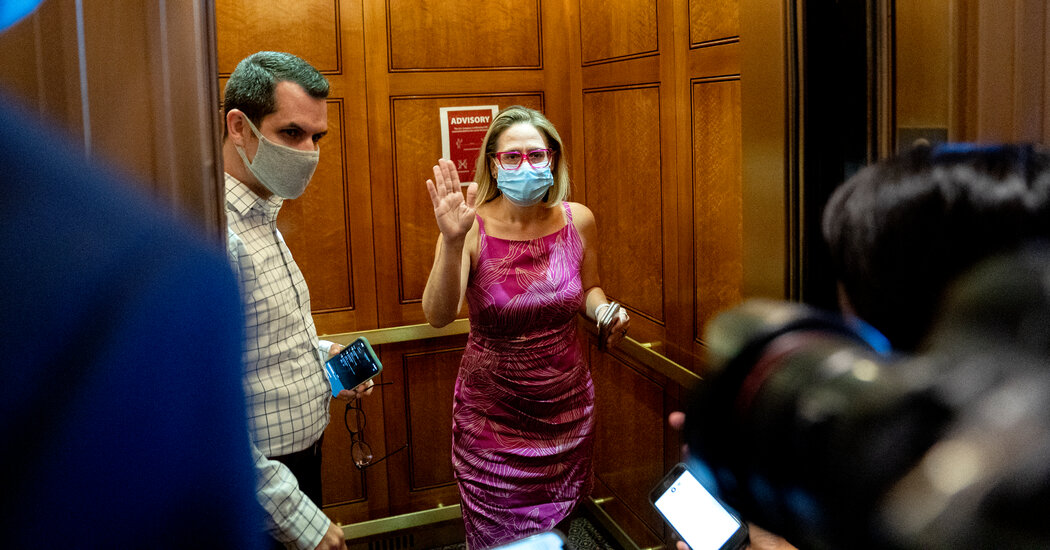The latter tax, which is backed by Mr. Wyden, would be designed to ensure that other countries with lax environmental rules would not be able to se
The latter tax, which is backed by Mr. Wyden, would be designed to ensure that other countries with lax environmental rules would not be able to sell their goods at a lower price to American consumers and reap a competitive advantage. Under the rules of the World Trade Organization, it could be difficult for the United States to impose such an import tax — essentially, a tariff on goods from heavily polluting countries — unless its own industries are also subject to one.
Mr. Wyden’s staff members, who are now writing that language, are considering a domestic carbon tax that could start at $15 to $18 per ton, and that would increase over time, according to two people familiar with the matter who were not authorized to speak on the record. The tax would be applied directly to coal mining companies, large natural gas processing plants and oil refiners, based on the emissions associated with their products, with one exception: Oil refiners would very likely be charged for producing diesel fuel and petrochemicals, but not gasoline — a way to try to prevent cost increases from hitting most American drivers at the pump.
But even if they can win Ms. Sinema over to the plan, others may not agree. Democrats still feel the sting of former President Barack Obama’s failed effort to pass a climate change bill that would have forced polluters to pay a fee for their fossil fuel emissions. After the House passed it in 2009, Republicans campaigned against it as an “energy tax.” The bill failed in the Senate and contributed to Democrats’ loss of the House in 2010.
Climate activists are trying to make the case to Ms. Sinema that times, and climate politics, have changed. “I can tell you that our volunteers have placed 1,444 calls and emails to Arizona Senate and House offices in the last few months,” wrote Steve Valk, a spokesman for the Citizens’ Climate Lobby, which wants a price placed on carbon pollution.
A crucial test of whether Ms. Sinema would support a carbon tax would be its effects on Arizona’s economy. Her state has suffered record droughts, which scientists say have been worsened by climate change — and is home to a growing solar power industry.
Robert Aiken, the vice president of federal affairs at Pinnacle West Capital, a Phoenix-based company that owns the largest electric utility in Arizona, said that he spoke on n Thursday with a staff member from an Arizona congressional office about a possible carbon tax provision in the budget bill.
“We were just asked about it from Capitol Hill an hour ago, for the first time,” he said on Thursday afternoon. He said that the company couldn’t yet say whether it would support the legislation until it had closely analyzed the details.
www.nytimes.com
